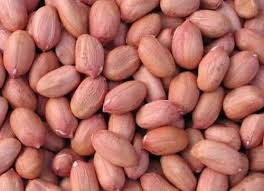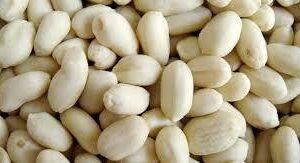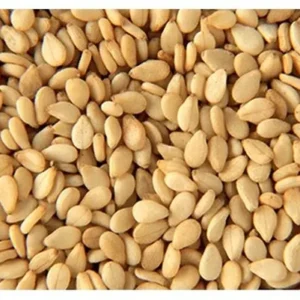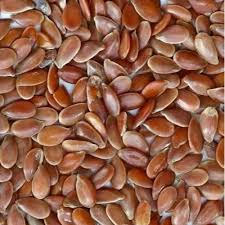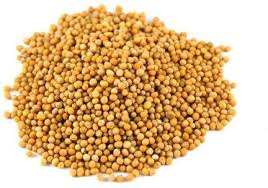Description
Peanuts, also known as groundnuts, are a popular legume widely consumed around the world. Here are some key points about peanuts:
- Botanical Classification: Peanuts are not true nuts but are classified as legumes belonging to the Fabaceae family, which also includes beans, lentils, and chickpeas. Unlike tree nuts, which grow on trees, peanuts grow underground.
- Nutritional Profile: Peanuts are nutrient-dense foods, rich in protein, healthy fats, dietary fiber, vitamins (such as vitamin E, niacin, and folate), and minerals (such as magnesium, phosphorus, and potassium). They are also a good source of antioxidants, particularly resveratrol and other polyphenols.
- Health Benefits: Consuming peanuts regularly has been associated with various health benefits, including supporting heart health, reducing the risk of cardiovascular disease, promoting weight management, and improving blood sugar control. Peanuts are also a valuable source of plant-based protein, making them suitable for vegetarian and vegan diets.
- Culinary Uses: Peanuts can be consumed in a variety of ways, both raw and roasted. They are commonly eaten as a snack, either plain or salted, and are also used in cooking and baking. Peanuts are a key ingredient in many cuisines around the world, used in dishes such as peanut butter, peanut sauce, curries, stir-fries, salads, and desserts.
- Peanut Butter: Peanut butter is a popular spread made from roasted peanuts that have been ground into a smooth or chunky paste. It is a versatile ingredient used in sandwiches, smoothies, baked goods, and savory dishes. Peanut butter is also a good source of protein and healthy fats, making it a nutritious addition to a balanced diet.
- Allergies: Peanuts are one of the most common food allergens, and peanut allergies can be severe and life-threatening for some individuals. People with peanut allergies must avoid all products containing peanuts, including peanut butter and foods that may contain traces of peanuts due to cross-contamination.
- Storage: Peanuts should be stored in a cool, dry place in an airtight container to prevent them from becoming rancid or moldy. Roasted peanuts have a shorter shelf life than raw peanuts and may spoil more quickly, so it’s best to consume them within a few weeks of opening.
Specifications
-
Botanical Name
Arachis Hypogaea
-
Common Names
Peanuts, Earth nuts, Goobers, Goober peas, Ground nuts, Pindas, Pinders, Manila Nuts, Monkey Nuts
-
Purity
95%, 98%, 99%
-
Moisture
Max. 11%
-
Cleaning
Machine Clean / Sortex Clean
-
GMO
Non Genetically Modified
-
Origin
India
Peanuts in other languages:
Spanish – Cacahuetes
Hindi – मूंगफली (Moongphali)
Italian – Arachidi
Portuguese – Amendoins
Japanese -ピーナッツ (Pīnattsu)


